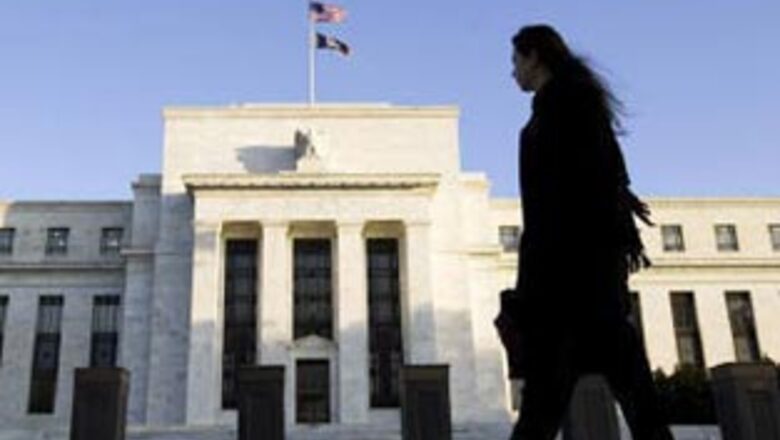
views
Washington/London: The US Fed appeared set to halve interest rates on Tuesday and bring them within sight of zero and Japan was weighing steps to ease funding when borrowing costs have been cut to the bone.
In Europe, manufacturing and services activity in the euro single currency area sank to new lows in December, a survey showed, pointing to a deepening recession and prompting talk of an interest rate cut next month.
European new car sales dropped by a quarter in November and manufacturers scaled back production.
Responding to the worst financial crisis in 80 years, the Federal Reserve is expected to cut its benchmark rate by at least half a point to 0.5 per cent, its lowest in more than half a century.
As it runs out of room for further rate cuts, the Fed is likely to promise to look at other instruments to pull the world's biggest economy out of recession.
Japanese example
The Fed may take a leaf out of the Japanese economic textbook.
In Japan, where rates are already at an ultra-low 0.3 per cent, the finance minister urged the central bank to also take unorthodox steps to ease a funding crunch.
Bank of Japan Governor Masaaki Shirakawa said he was studying possible effects of so-called quantitative easing, a policy of flooding banks with zero interest money, which Japan adopted early this decade to spur lending and jump-start a stagnant economy.
Economists expect the Fed to acknowledge it will have to resort to direct purchases of government and mortgage-related debt and possibly Japanese-style money injections.
Analysts are also debating whether the biggest plunge in business confidence in three decades will prompt the Bank of Japan to lower rates again when it meets this week.
Shirakawa on Tuesday appeared to keep the door open to more easing, telling lawmakers economic conditions grew increasingly severe and pledging "appropriate actions."
"The last time the world economy was in severe conditions was 1929 and the years that followed. Things are not completely the same today, but we can say it is in the severest conditions since then," he told lawmakers.
Ahead of the Fed, the central bank in Saudi Arabia, the world's biggest oil exporter, cuts its two main interest rates by 50 basis points on Tuesday.
China cools
European shares were higher in volatile trading before the Fed decision, due to be announced around 1915 GMT.
Equity markets were also looking to earnings from Wall Street bank Goldman Sachs which was expected to report a quarterly loss of as much as $2.5 billion.
Oil prices rose above $45, lifted by expectations that OPEC will this week agree its largest ever supply cut lending support. Oil prices have plunged $100 from their all-time high in July because of slumping demand as economies stall.
Among the world's top economies only China has avoided recession, but it risks a sharp slowdown and its authorities are scrambling to secure a soft landing with heavy government spending and aggressive interest rate cuts.
The International Monetary Fund said on Monday Chinese growth could almost halve next year to between 5 and 6 per cent, below the 8 per cent rate widely regarded as needed to provide jobs for millions of migrant workers and avoid social unrest.
Data pointing to a cooling of red-hot capital spending growth, rounded off a batch of statistics on Tuesday that confirmed the world's fourth-largest economy and its main growth engine was rapidly losing steam.



















Comments
0 comment